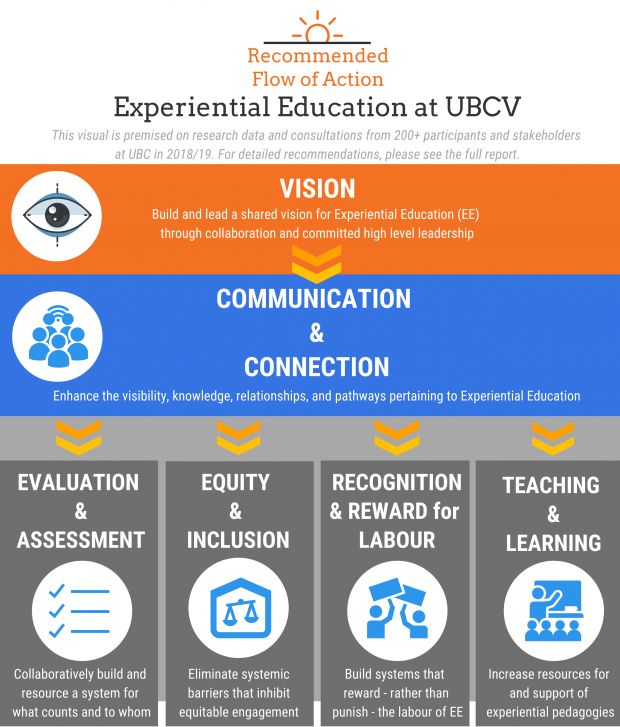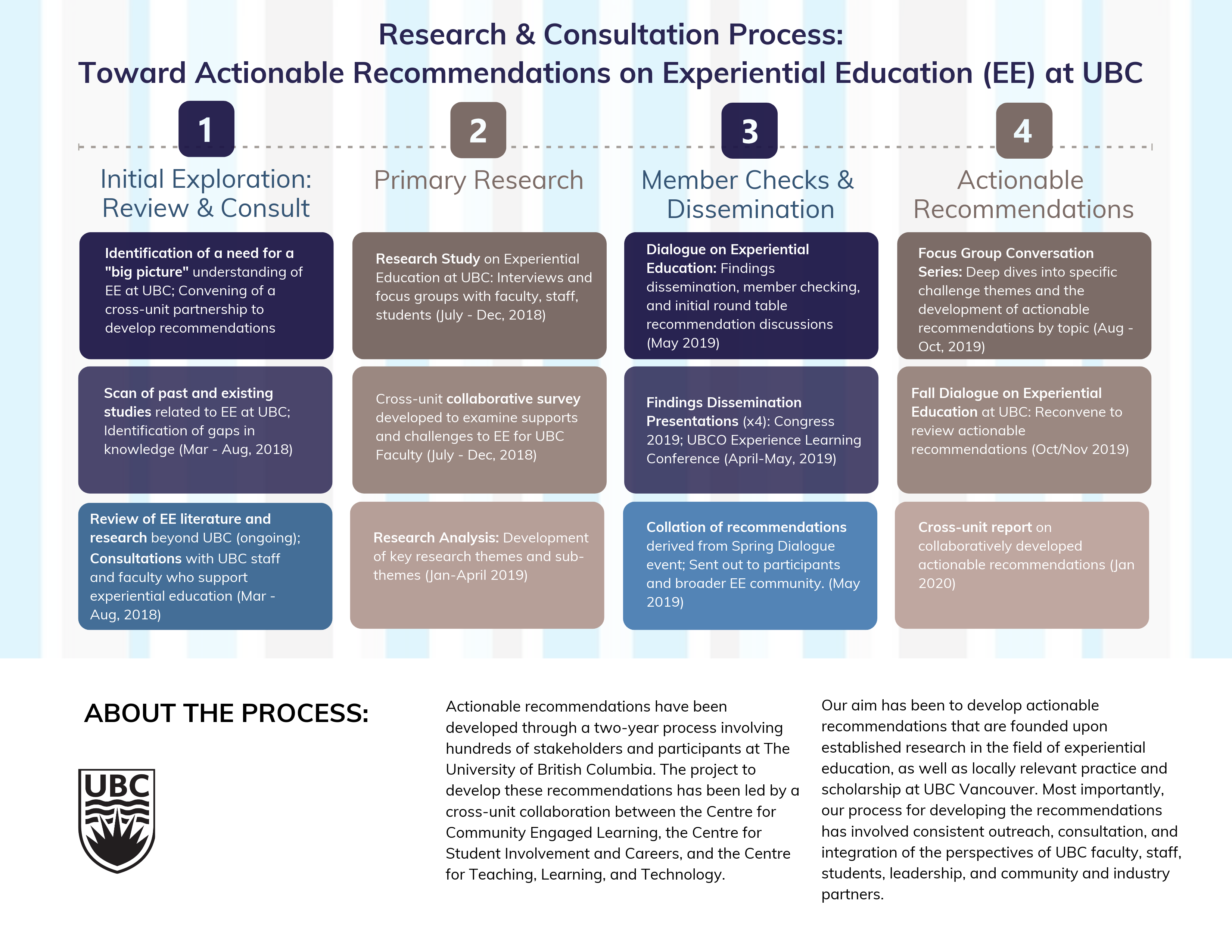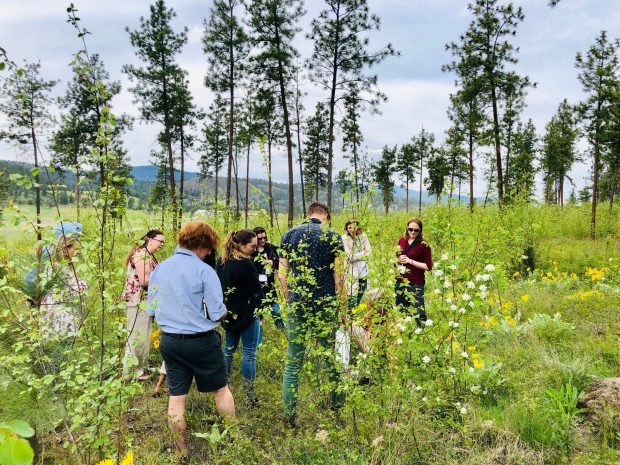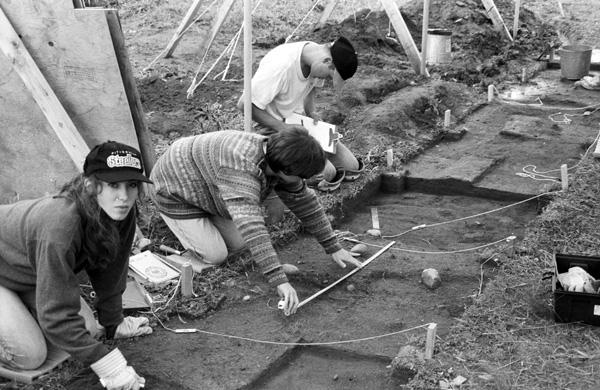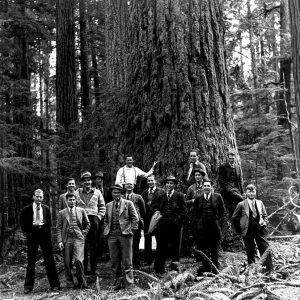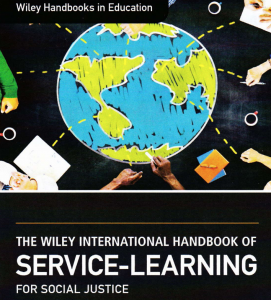*The photo above was taken during UBC Okanagan’s Experience Learning Conference on May 7th. During one session, we learned about native Okanagan plant species with botanist, Dr. Terry McIntosh.
I hope this update finds you well and enjoying the spring weather. It has been a number of months since my last update to UBC’s Experiential Learning community, and there is much to share!
On May 8th, 2019 at UBC Okanagan’s Experience Learning Conference, UBC President Santa Ono conveyed a passionate message about the importance of experiential learning: In our current geopolitical climate, as walls are built and protectionist policies are enacted, experiential learning offers a bridge and an outward facing connection. I heard this as a broader statement about experiential learning in post-secondary institutions: It represents not only an opportunity to teach students through transformative pedagogies, but it also positions educational institutions- and the people who embody them – as arbiters of relationships across (both local and international) borders. With such a charge comes tremendous responsibility to think deeply about the ways that experiential pedagogies are conceived, wielded, and supported at UBC. This research project, along with others across UBC, is one way for us to generate insights and enhance our work in light of that responsibility.
With Ono’s message in mind, below are a few updates. Please feel free to get in touch with me at any time, and thanks again for your continued passion and engagement around this topic.
Research Update: Spring 2019 has been focused on member checking data themes, writing up research findings, and sharing back the research with various pockets of the UBC Experiential Learning community. If you have been a part of that process, thank you for your continued time and participation. Below is a brief overview of a recent event we facilitated, which was designed to take the next steps in refining, disseminating, and taking action on this research.
A Dialogue on Experiential Learning at UBC Vancouver: On April 29th, 2019, a cross-unit team from the CTLT, CCEL, and CSI&C facilitated a half-day dialogue hosted by Simon Bates and Janet Teasdale with fifty members of UBC’s experiential learning community, which included associate deans, faculty members, undergraduate and graduate students, and staff – many of whom were participants in the study. The aims of this event were to member check selected challenge themes from my research project, refine priority areas for strategic action, and support the development of an interdisciplinary and cross-unit community of experiential learning leaders at UBC.
Key challenge areas that were discussed and refined included:
- Time: The complexity and intensity of experiential learning practices take time. The additional time and work of experiential learning is unevenly valued and supported across the university.
- Risk and Responsibility: There is an inherent level of risk and responsibility involved with embedding experiential learning in courses/programs. This level of risk and responsibility impacts who does and sustains the work of experiential learning in courses/programs.
- Accessibility: Students from diverse backgrounds experience unequal levels of access to experiential learning opportunities.
- Relationships and Reciprocity: There is an inherent level of complexity involved with building and sustaining relationships with communities and organizations.
- What counts and to whom?: There are significant limitations to current university practices that attempt to measure the value, quantity, quality, and impact of experiential learning programs/courses.
Additional topics that arose through the dialogue included:
- Definition and branding: How does UBC define experiential learning and is there some value in generating a common institution-wide definition, principles, or understanding? (this conversation revealed significant disagreement)
- Rewarding the work: How can UBC systems better reward/support those who do the additional labour of experiential learning (faculty, staff, students, and community/workplace partners)
- Collaboration and Communication: How can UBC support cross-pollination and enhanced communication between units and faculties?
Associate Provost, Teaching and Learning, Simon Bates, closed the Dialogue event with an invitation for us to reconvene in Fall 2019 in order to generate recommendations and action items – with the possibility of those recommendations being heard and taken up by Senate Teaching and Learning Committee. For my part, in the coming year of this project, I aim to build capacity across units to support EL, develop resources for faculty and staff, and generate additional collaborations to respond to the data gleaned from the research.
UBC Okanagan’s Experience Learning Conference (May 2019)
UBC Okanagan, like UBC Vancouver, has been working diligently to strengthen its support of experiential learning. Last week I had the pleasure of attending their conference as an invited panelist for the opening plenary. The conference was welcoming, well-organized, and intimate. My favourite component (in the true spirit of experiential learning) was a half-day of organized experiential activities around campus. I participated in a nature walk to learn about Okanagan plant species with botanist, Dr. Terry McIntosh (see photo above). I also attended a 3D printing class in UBCO’s Makerspace, hosted by Engineering Instructor, Dr. Sabine Weyand. The conference ended with a one-hour address from UBC President, Santa Ono.
Graduate Job Opportunities in Experiential Learning:
Four specialized graduate job opportunities are available in the realm of experiential learning (Contact Dr. Kerry Greer for more info: Kerry.greer@ubc.ca):
- 3 x Graduate Teaching Assistant positions with the Department of Sociology and the Centre for Community Engaged Learning. These GTAs will focus on building graduate students’ understanding and practice of community engaged learning.
- 1 x Graduate Research Assistant position with the Department of Sociology. This GRA will evaluate the expansion of experiential learning in both the Coordinated Arts Program / Vantage College, and within Sociology.
Upcoming Events at UBC Vancouver:
- Spring Institute May 21-24 (There are several events focused on forms of experiential learning, community engagement, and active pedagogies)
- Congress 2019 June 1-5 (I will be presenting at four sessions during Congress – all in relation to this project)
- Pedagogy Hub (During Congress): Several public sessions focused on teaching and learning (no need to register for Congress to attend these sessions)
